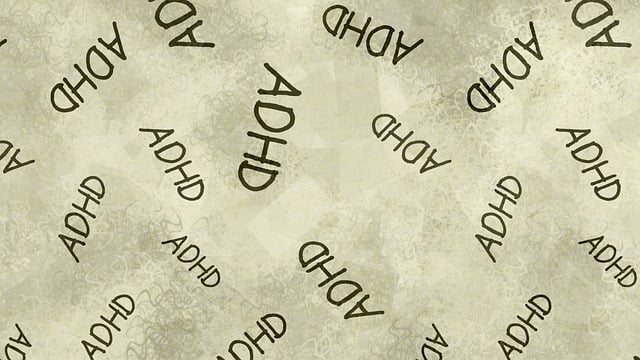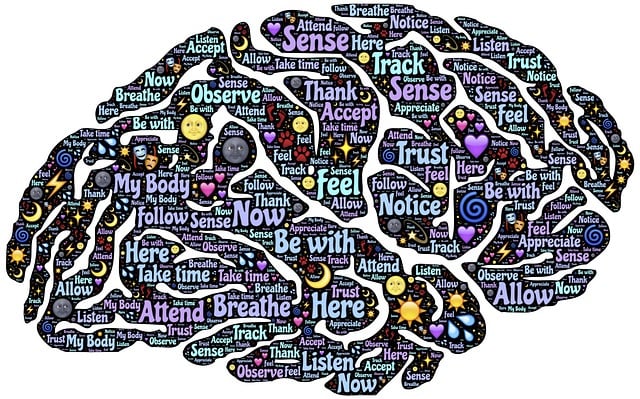Therapy for Crisis Counseling provides a safe space for individuals to express emotions, gain insights, and learn practical coping strategies from trained professionals. Emphasizing emotional intelligence, mental wellness coaching, and cognitive techniques, this approach helps clients understand personal triggers, develop resilience, and replace negative thoughts with positive perspectives. Behavioral interventions teach adaptive coping strategies through reinforcement, while integrating self-awareness exercises cultivates mindfulness and long-term coping skills. Ultimately, therapy for crisis counseling aims to enhance mental health, improve quality of life, and build strong social connections for effective crisis management.
In times of crisis, effective coping skills become paramount. This article explores the essential role of therapy in crisis counseling, providing a robust foundation for individuals to navigate challenging situations. From understanding the core principles of crisis counseling to personalizing strategies based on unique needs, we delve into various techniques. We cover cognitive methods for challenging negative thought patterns and behavioral interventions aimed at fostering adaptability. Additionally, we emphasize building resilience as a key component in developing long-term coping skills, ensuring individuals can thrive even in stressful environments.
- Understanding Crisis Counseling: A Foundation for Coping Skills
- Identifying Individual Needs: Personalizing Coping Strategies
- Cognitive Techniques: Challenging Negative Thought Patterns
- Behavioral Interventions: Shaping Adaptive Behaviors
- Building Resilience: Long-term Coping Skills Development
Understanding Crisis Counseling: A Foundation for Coping Skills

Crisis counseling is a specialized form of therapy designed to provide immediate support and guidance during times of intense emotional distress or traumatic events. It serves as a crucial foundation for developing effective coping skills, enabling individuals to navigate challenging situations with resilience. In the context of therapy for crisis counseling, trained professionals offer a safe space for clients to express their feelings, gain insights into their experiences, and learn practical strategies to manage crises effectively.
Understanding crisis counseling is essential in fostering personal growth and well-being. Trauma support services often incorporate crisis counseling techniques to help individuals process traumatic memories, reduce anxiety relief, and promote emotional healing. Moreover, stress management workshops organized by various organizations benefit from these principles, teaching participants how to identify triggers, develop coping mechanisms, and maintain mental equilibrium during stressful periods. By integrating crisis counseling into their lives, people can enhance their ability to cope with future challenges, thereby improving overall mental health and quality of life.
Identifying Individual Needs: Personalizing Coping Strategies

Every individual’s journey towards effective coping is unique. Identifying personal needs and preferences is a crucial step in this process. Crisis counseling therapists often emphasize understanding one’s emotional triggers, stressors, and coping mechanisms as part of therapy for crisis counseling. This personalized approach ensures that coping strategies are tailored to the specific circumstances and personality of each client.
Emotional intelligence plays a significant role here, as it allows individuals to recognize their emotions and understand how they influence their reactions. Mental wellness coaching programs and mental health education can empower people to develop these skills, enabling them to navigate challenging situations with resilience. By designing coping strategies aligned with personal needs, one can enhance overall mental wellness and better handle life’s crises.
Cognitive Techniques: Challenging Negative Thought Patterns

Cognitive techniques play a pivotal role in coping skills development, especially for crisis counseling therapies. By challenging negative thought patterns, individuals can learn to replace distorted beliefs and self-critical thoughts with more realistic and positive perspectives. This process involves identifying automatic negative thoughts—the instant, often unconscious reactions that arise in stressful situations. Once recognized, these thoughts can be scrutinized for their validity and rationality.
For instance, a person experiencing anxiety might have the thought, “I’m not good enough.” A cognitive technique would encourage them to question this thought, perhaps by considering evidence for and against it. This mind over matter approach helps build resilience by fostering healthier communication strategies. By changing how one interprets events, individuals can reduce anxiety relief and enhance their overall well-being, making them better equipped to navigate challenging situations.
Behavioral Interventions: Shaping Adaptive Behaviors

Behavioral interventions play a pivotal role in shaping adaptive behaviors for individuals seeking therapy for crisis counseling. These strategies focus on modifying maladaptive patterns and fostering positive ones, ultimately enhancing coping skills. Through systematic reinforcement, individuals can learn to regulate their emotions more effectively, making them better equipped to handle stressful situations.
One common approach is modeling and practice, where therapists guide clients through various coping techniques. This involves teaching communication strategies, problem-solving skills, and healthy ways to express emotions. For instance, a mental wellness podcast series production might incorporate exercises on deep breathing and mindfulness meditation as part of their depression prevention initiatives. By consistently reinforcing these behaviors, individuals can develop them into automatic responses during crises.
Building Resilience: Long-term Coping Skills Development

Developing long-term coping skills is a cornerstone of building resilience, which is crucial in managing crises and maintaining mental well-being. Therapy for crisis counseling often focuses on equipping individuals with effective strategies to navigate challenging situations. This involves not just short-term relief but fostering an ability to adapt and bounce back over time. One powerful approach is integrating self-awareness exercises into daily routines. By cultivating mindfulness, people can better understand their triggers, emotions, and thought patterns, enabling them to make conscious decisions in stressful scenarios.
Additionally, the concept of ‘mind over matter’ principles plays a significant role. This involves reframing one’s perspective, challenging negative thoughts, and adopting a growth mindset. Such strategies foster resilience by helping individuals see setbacks as opportunities for learning and personal development. Moreover, empathy-building strategies are essential in enhancing social connections and fostering support networks, which are vital for coping with crises effectively.
Crisis counseling serves as a powerful therapy for individuals navigating challenging situations. By understanding the foundational principles and personalizing coping strategies, we can effectively support those in need. Integrating cognitive techniques to challenge negative thought patterns and behavioral interventions to foster adaptive behaviors are key components of this process. Ultimately, building resilience through long-term coping skills development enables individuals to navigate future crises with greater ease and confidence.











